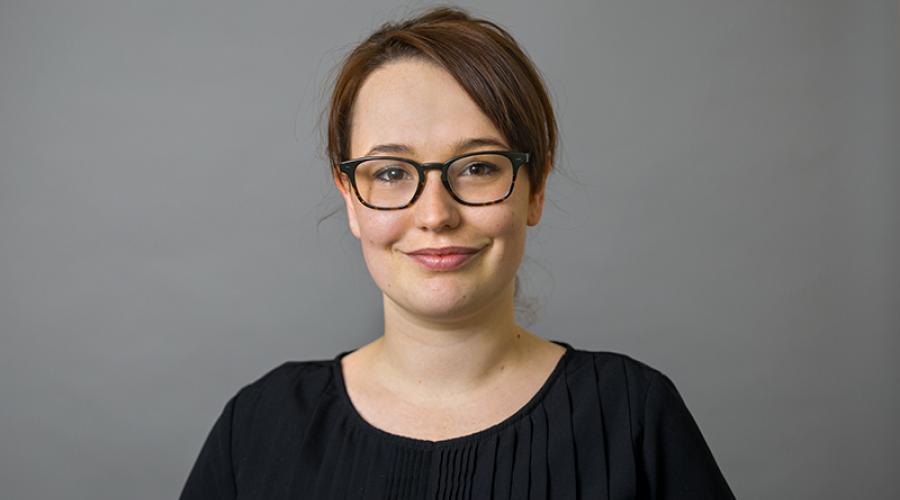
Research Inspires Path
Doctoral student Lily Burns ’14 has always been inspired by “The Little Engine That Could.”
A first-generation college student, Burns moved to Binghamton from San Diego in 2008 to be closer to her boyfriend’s family. The two later married and now have a 1-year-old daughter.
For several years, Burns worked in data entry and customer service for a wholesale optical laboratory.
After developing carpal tunnel syndrome and being placed on restricted duty, she enrolled at SUNY Broome Community College, where she studied human services and psychology. In 2012, at the age of 22, she transferred to ILR as a junior.
At the time, she was interested in human resources management and had her sights set on the MILR program. After being exposed to research opportunities, however, she rapidly changed course.
“As soon as I realized I could get involved with research, I jumped in,” she says. During her two years as an ILR undergraduate, Burns was a research assistant for three Organizational Behavior faculty members: Jack Goncalo, her adviser; Michele Williams, for whom she also served as a teaching assistant; and Bill Sonnenstuhl.
“I was fortunate to have had fantastic mentors — I was taken seriously as an undergraduate and given opportunities to administer lab studies, and contribute to theory development and creating coding criteria,” she says. “I was really hands on.”
During her senior year, Burns did two independent study projects, both overseen by Sonnenstuhl.
In “Self-Efficacy and Work: Do You ‘Think You Can’ and Why That Matters,” she of Individuals and Organizations sought a better understanding of why believing in yourself can lead to positive workplace outcomes.
The second project, on freshman drinking behavior, looked at pluralistic ignorance and how students’ beliefs about the types of drinking behaviors their peers were engaging in influenced their own behaviors.
When it came time to consider graduate schools, Burns applied to several, but decided to stay at ILR.
“ILR was the best place for me,” she says. “I’m interested in creativity — specifically, those factors that stimulate and stifle creativity in individuals and organizations — and my adviser is doing some of the best creativity research in the world.”
For her senior honors thesis, Burns examined whether masculine overcompensation can increase creativity. She is following up on that project and is also studying gender difference in negotiations with Williams and Poppy McLeod, associate professor in the College of Agriculture and Life Sciences Department of Communication.
Beyond the classroom and lab, Burns is making an impact in her community.
As a leadership coordinator for The Research Foundation for SUNY (State University of New York) from 2012 to 2014, she created and oversaw a Youth Advisory Council for SUNY Binghamton’s Liberty Partnerships Program.
“We tried to strengthen the youth voice in the community, along with highlighting community initiatives that supported youth,” she said.
Reflecting on how far she has come, Burns says, “Growing up, and as a community college student, I never realized that getting a Ph.D. or pursuing something I am so passionate about was possible.”
“Earning a Ph.D. — even getting into a Ph.D. program — in the context of my family is a very big deal.” “I think it helps to have the background I do. Even when I run out of steam, I’m able to keep going.”


